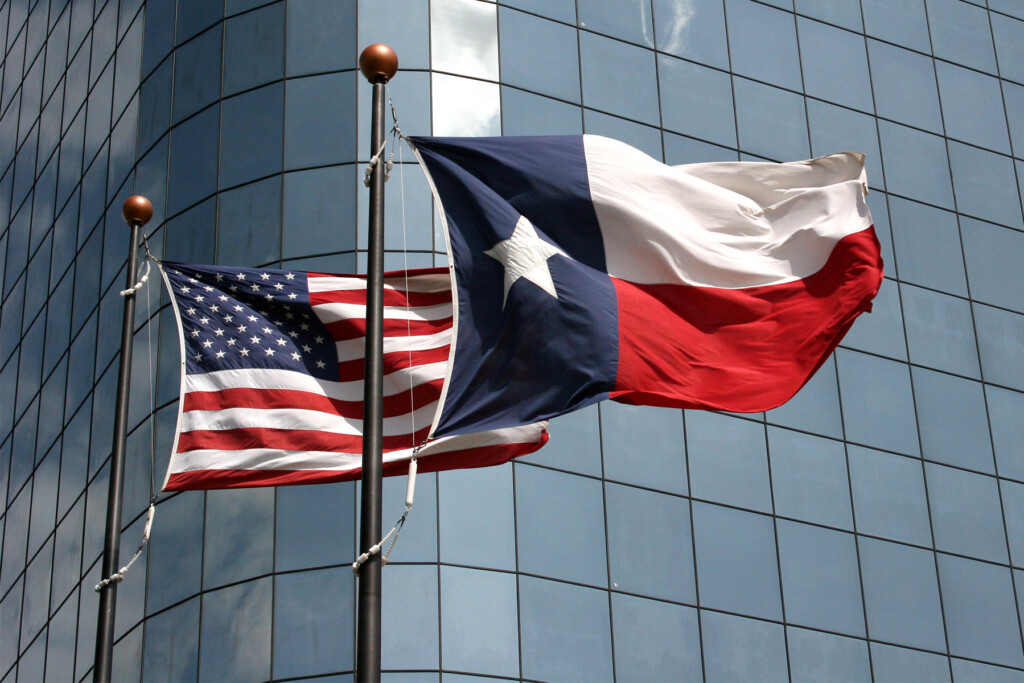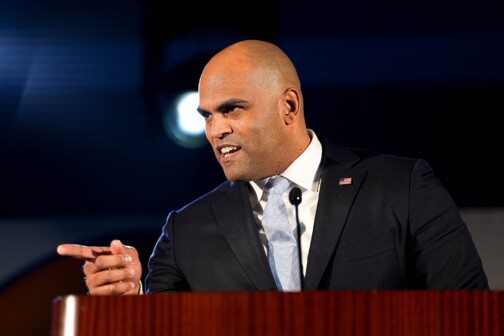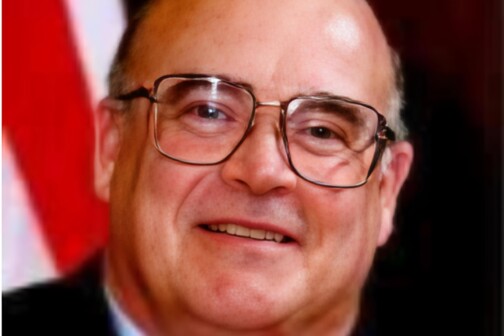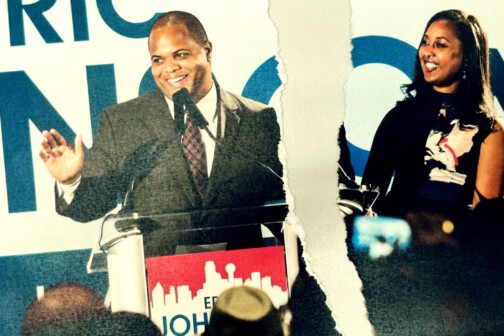At a recent Young President’s Organization event at Dallas Country Club, founder and CEO of London-based Hermitage Capital Management Bill Browder spoke on his experience as one of Russia’s largest foreign investors in the early 2000s. Browder shared his thoughts around Putin’s psychology, where the war in Ukraine may be headed, and how it may impact the energy sector.
“The most unfortunate and likely scenario is that this is an ugly, hot war that carries on for a long time,” Browder said.
A Long Road with Russia
Browder founded his investment fund, Hermitage Fund, in Moscow in 1996 after consulting on several privatization efforts in the country. “At the peak, we had $4.5 billion under management. These days, that’s nothing in America, but in Russia, it was the biggest thing you could ever imagine,” he said. Browder soon learned through his business dealings that Russian oligarchs were becoming majority owners in the businesses he invested in and stealing cash. “It wasn’t like you could go to the government, or the regulators, or police and ask them to do anything about it because all these people were on the payroll,” he said.
He began sharing his research into this corruption with media around the time Putin was first elected in 2003. “When he first became president, he wasn’t this all-powerful guy like he is right now,” Browder said. “The oligarchs had stolen most of the powers of the presidency.” For a short while, Putin seemed to be cracking down on the corruption that Browder was exposing, but when he arrested the largest oligarch at the time, all the other oligarchs caved in, giving Putin 50 percent of the companies they owned. At that point, Putin became one of the richest men in the world, and his interests diverged from those of Browder.
In 2005, less than two years into Putin’s presidency, Browder was detained at a Russian airport and denied entry into the country. “After I get back to London, [the Russians] issued me a short piece of paper saying that I’ve been expelled because I’m a threat to national security,” Browder recounts. He knew that his deportation wouldn’t be Putin’s last move against him, so he arranged an emergency evacuation of all his staff in Russia and liquidated his firm’s assets. Eighteen months later, the Russians seized control of his company and ran a tax scam to receive an illegal refund of the $230 million in capital gains that Browder had paid the year prior.
Browder thought that because Putin was a nationalist and these men who had gotten the illegal tax refund were stealing money from the Russian government, the scammers must have been part of a rogue operation. Browder felt if he and his lawyer, Sergei Magnitsky, filed the correct complaints and exposed the men, Putin would crack down on the crooks. Instead, his lawyer was arrested after giving Russian authorities his testimony and ultimately tortured to death as they tried to get him to withdraw his statement. “It turns out that in Putin’s Russia, there aren’t any good guys,” Browder said.
Since then, Browder has started a global campaign for governments to deny entry and freeze any assets held in the West for human rights abusers and corrupt officials. These sanctions were passed in the U.S. in 2012 for Russian human rights abusers and officials and extended to include global human rights abusers and officials in 2016. Canada, the U.K., the Baltic states, the E.U., and Australia have passed similar laws. About 500 people and entities have been sanctioned, according to Browder.
Putin responded by making Browder the subject of negotiation with Trump in 2018. The U.S. refused to hand him over to the Russians. “Of all the 7 billion people on the planet, the one person they’re talking about is me,” Browder said. (Some have described Browder “Putin’s No. 1 Enemy.”) More recently, he has written two books recounting his story and has been sharing his thoughts on the Russian dictator’s psychology and predictions for current events.
Here are some key takeaways Browder shared about the war in Ukraine, its impact on the energy sector, and more:
Now, it looks like Putin and his oligarchs are at war with each other. What will happen to Putin’s fortune in the fighting?
BROWDER: “The oligarchs are an alpha male on steroids when they’re on their own, but they’re absolutely terrified of Vladimir Putin. At any point, he could take their money away and put them in jail or kill them, and they all understand that, and they’re all terrified of it. These guys worth $15 or $20 billion, behave like the most cowardly people [in front of Putin]. So, there’s not going to be any oligarch uprising. The money for a bunch of these oligarchs has now been frozen: Their money is frozen, and Putin’s money is frozen. I wouldn’t expect anything other than depriving them of their resources from the sanctions—depriving Putin of his resources—but that’s still a very good thing.”
What do you feel is happening in Putin’s psychology as he maneuvers through the war in Ukraine?
BROWDER: “The most important thing to understand is why Putin is doing what he is doing. If you listen to political scientists trying to define the situation, they’ll say, ‘He’s doing this because he’s unhappy with NATO enlargement or he wants to make a grand Russian Empire.’ That’s not why he’s doing this. He’s doing this because he and 1000 other people have stolen a trillion dollars in 22 years from the Russian people. That money should have been spent on hospitals, schools, roads, etc, and it was spent on yachts and private planes. You can do that for a year. You can do that for three years. You can do that for five years. You can’t do it for 22 years without having some uprising at some point, and Putin understood that if there was an uprising and he lost power, there is no ‘Putin Presidential Library’ for him to retire to where he can do painting.
“He would die. His money would get taken away, he would go to jail, and he would die. For him, staying in power is staying alive. He thinks that people are going to come for him one day, and he’s going to die. He’s going to make sure they don’t come for him. How do you make sure if you’re a dictator that people don’t overthrow you? You create a foreign enemy. You start a war. This war in Ukraine is about him staying alive and staying in power.
“That’s a very upsetting conclusion to come to because it means that there’s nothing that we can do. His whole thing is to be at war, to stay in power, and by the way, it’s worked: He’s gone to an 85 percent approval rating. He’s been able to eliminate any form of opposition. He’s running a police state right now. It’s working in terms of staying in power, but it’s not good. He won’t be able to stay in power unless he stays at war. So, on his side, there’s no negotiation.
“On the Ukrainian side, there might have been negotiation in the first week or two or three. The heartbreak and destruction is unforgivable at this point, and there’s no negotiation from the Ukrainian side. So, we’re in a situation where nobody has any capacity to back down, which is just going to lead to more escalation. The Ukrainians have done a beautiful job of pushing the Russians out of the northeast part of the occupied territories. They have killed a lot of Russian soldiers and destroyed a lot of Russian equipment. What is Putin doing? He’s not retreating. He’s going and drafting. He’s going to double down, triple down, and quadruple down.
“What does this mean in terms of how far the escalation go? He’s a psychopath. He was perfectly happy killing a million civilian Ukrainians with tactical nuclear weapons if that achieves some objective… I think we’re a long way away from that eventuality. I think there’s a hell of a lot of ugly escalation with a million other troops. Putin has got all the money in the world. He’s got a billion dollars a day coming in from the sale of oil and gas. He can buy weapons until the cows come home. He can really do this for a long time.”
How do you see the energy crisis unfolding in Europe in the winter?
BROWDER: “I see it unfolding very unpleasantly. What’s happened so far is we provided the military equipment to Ukraine, which is good. We wanted to sanction and cut off the financial flows to Russia so that [Putin] can’t afford to fight back. As part of cutting off their financial resources, we’ve frozen a lot of their savings—central bank reserves have been frozen. The big Achilles heel has been that a billion dollars a day were going to the sale of oil and gas and gas, particularly to Europe.
“But then Putin solved this problem for us because he cut off the gas exports to Europe. He’s now done something which we could never have achieved, which is sanctioning himself. Twenty-five percent of the Russian government budget revenues come from the Gazprom, and a big part of that is now not going to come.
“So, Europe is going to have a really ugly winter. The ugly winter is going to eventually come to spring. Putin is hoping that the Europeans are so upset they’re going to capitulate. [Europeans] have to come to a unanimous agreement to capitulate. For them to even come up with unanimity on how they’re going to capitulate, they’re already going to be in the spring of next year.
“The other thing I would say is that the Germans understand now that their entire national economic security has been challenged by the Russians. So, what are they going to do? They’re going to find a way to become independent of the Russians, and they’re going to set up LNG terminals. They’re going to buy gas from other places; they’re going to set up solar panels; they are going to do anything and everything they can possibly do. When the Germans put their mind to stuff, Germans get stuff done. It’s going to be an ugly winter, and there’s going to be some forces that are going to try to try to capitulate, but I don’t think it’s going to end up happening.”





